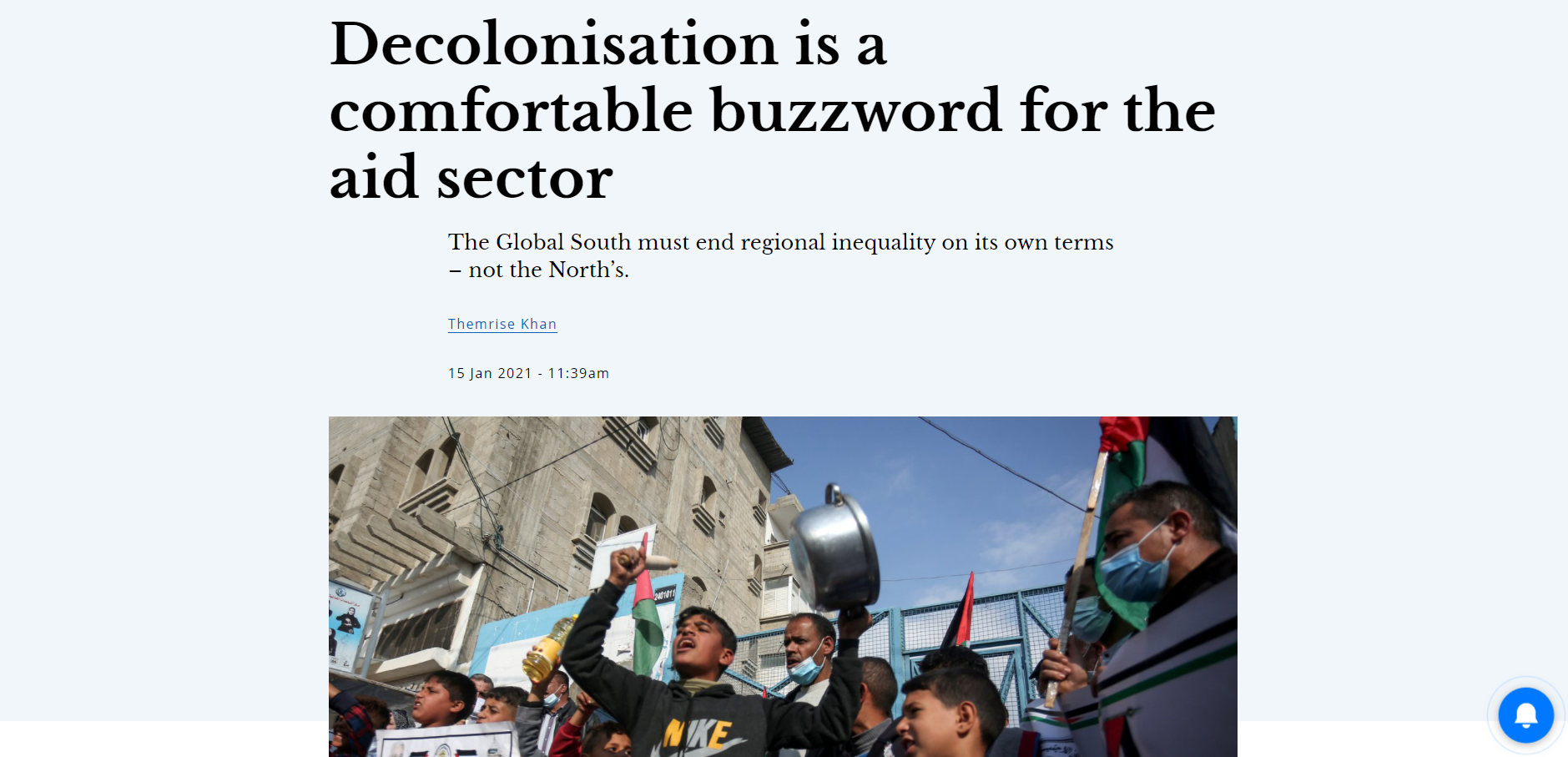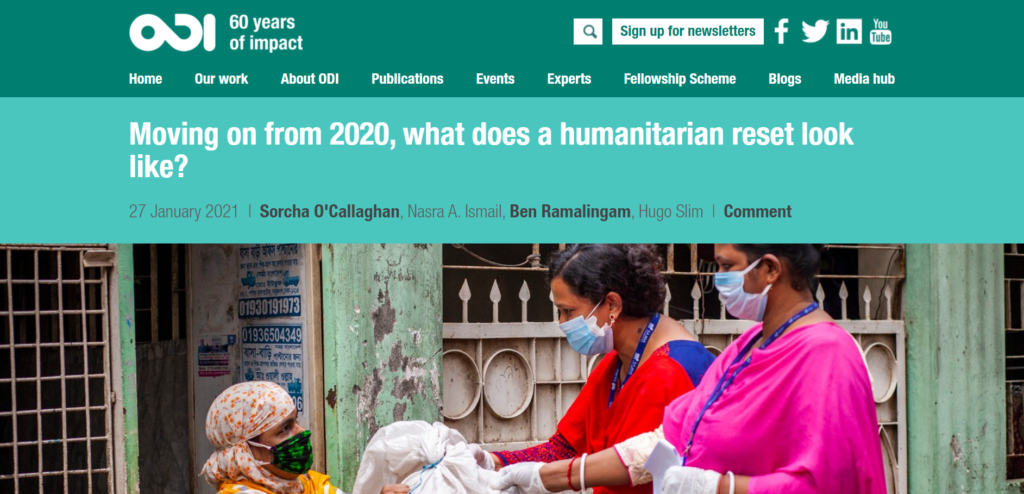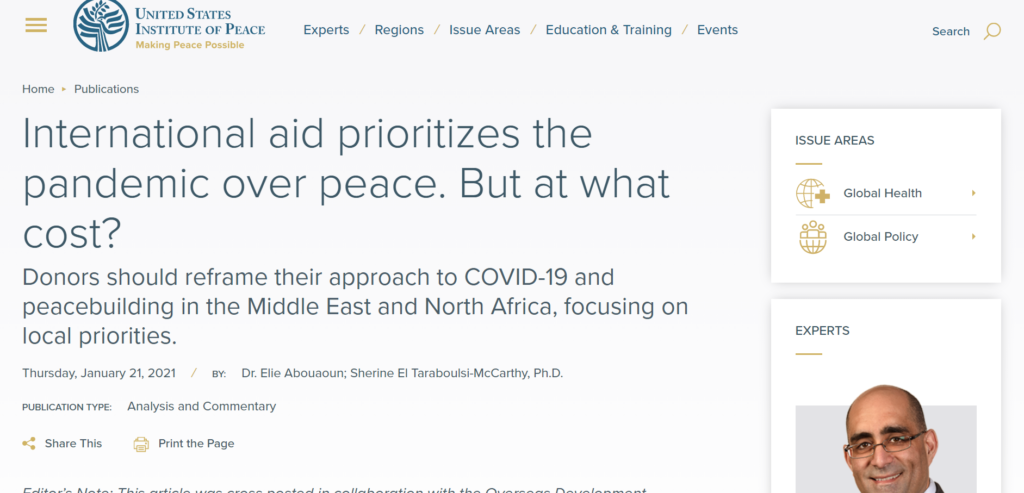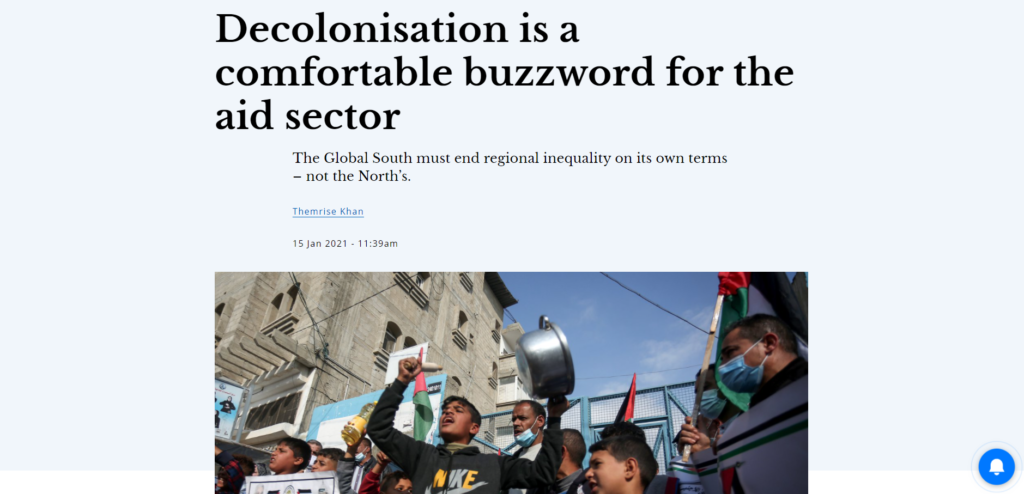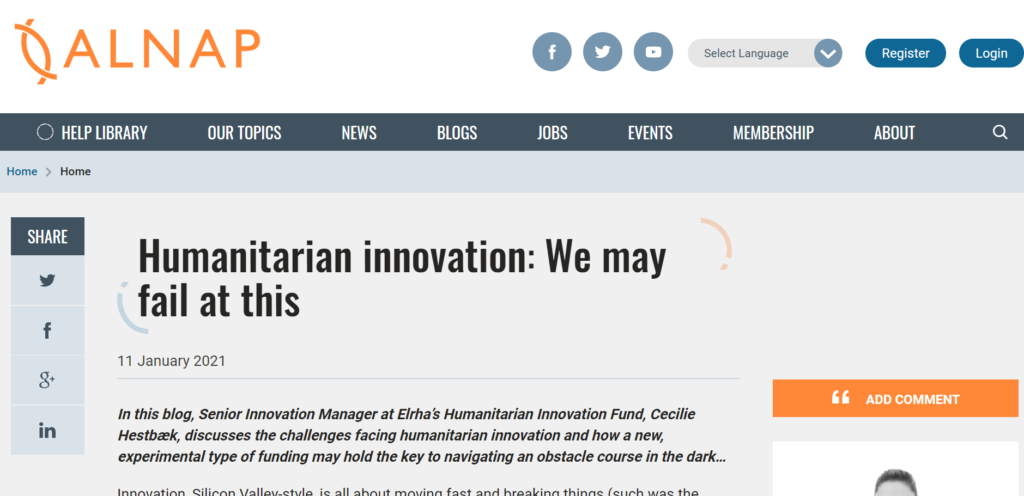Five critical articles to read as humanitarian in January 2020
We just closed the first month of the new year, 2021. We know what 2020 has been like, what will 2021 bring us all.
What would post-2020, a humanitarian reset look like, as discussed by a panel organized by the Humanitarian Policy Group? Given the COVID19 pandemic, international aid has prioritizes the pandemic over peace. But at what cost?
Decolonisation is a comfortable buzzword for the aid sector, as argued by Themrise Khan. But in fact, it is seen as a further imposition of a white saviour complex. More critical notes in this month’s selection from Hugo Slim. He calls to address the question of corruption, if you want to see much more locally led humanitarian action.
Final contribution that made this months selection I made, is the blog from Cecilie Hestbæk, of Elhra. Questioning Humanitarian Innovation, about that we may fail at this, at the launch of a new funding model and adoption challenge.
Moving on from 2020, what does a humanitarian reset look like?
2020 was, by any measure, a year of unprecedented disruption. Soaring Covid-19 death rates and chaotic responses in richer countries called into question traditional characterisations of a competent global north and struggling global south. The murder of George Floyd and the Black Lives Matter movement elevated conversations about racism across society.
Amid these events, the fault-lines in how humanitarian action currently functions were brought into sharp relief, forcing reflection on what needs to change for it to be relevant to needs arising from inequality and injustice, as well as from crisis.
The Humanitarian Policy Group brought together a group of humanitarian experts (Nasra A. Ismail, Ben Ramalingam, Hugo Slim) to discuss whether these events would trigger a humanitarian ‘reset’
International aid prioritizes the pandemic over peace. But at what cost?
With the novel coronavirus emerging in late 2019, the attention of Western governments and international NGOs was dominated by the COVID pandemic in 2020, upending everything from domestic policies to international assistance priorities. But does this prioritization of COVID align with challenges facing the people of the region?
Research of the Overseas Development Institute Mediterranean, with USIP United States Institute of Peace, Dr. Elie Abouaoun and Sherine El Taraboulsi-McCarthy lay out the resounding message that COVID-19 aid has eclipsed more pressing priorities. Donors should reframe their approach to COVID-19 and peacebuilding in the Middle East and North Africa, focusing on local priorities.
Decolonisation is a comfortable buzzword for the aid sector
Decolonisation is fast becoming a buzzword for those who are critically examining the practices and objectives of the international aid industry along with many other sectors. It is seen as the way to “shift” the narratives of development aid from powerful aid agencies and international non-governmental organisations, to those they claim to work with in the Global South.
Themrise Khan makes a sharp analysis at the blog of OpenDemocracy. But the discussion around the decolonisation of aid practices is, in reality, extremely one-sided and Western-centric. It rarely includes the perspectives of those in the Global South. Many in the South do not agree with or relate to this terminology. In fact, it is seen as a further imposition of a white saviour complex, with the powerful West once again deciding what is good for us and how this must be done.
Corruption and the localisation of humanitarian action
Hugo Slim calls to address the question of corruption, if you want to see much more locally led humanitarian action. Sweeping generalisations about corruption are often the whispered argument of last resort by those who resist the shift of resources away from international agencies. But whose corruption counts?
Hugo Slim digs into assumptions, what corruption is, as well as local and international corruption. Whose corruption counts? If presumed corruption is a reason for not funding national and local organisations, then it is also a reason not to fund international organisations.
Humanitarian Innovation: We may fail at this
In this blog, Senior Innovation Manager at Elrha’s Humanitarian Innovation Fund, Cecilie Hestbæk, discusses the challenges facing humanitarian innovation and how a new, experimental type of funding may hold the key to navigating an obstacle course in the dark… The blog announces a new challenge, a new funding model; the launch of the adoption challenge.
Innovation, Silicon Valley-style, is all about moving fast and breaking things (such was the alleged motto of Facebook’s Mark Zuckerberg as the company started out). Then, for the few who make it through with a product that consumers want, it becomes about scaling up fast. In the humanitarian sector, we need to do things a little differently. Our innovation processes must be guided by the priority needs of people affected by crises, not by what might be a profitable business model (though the two are not mutually exclusive).
